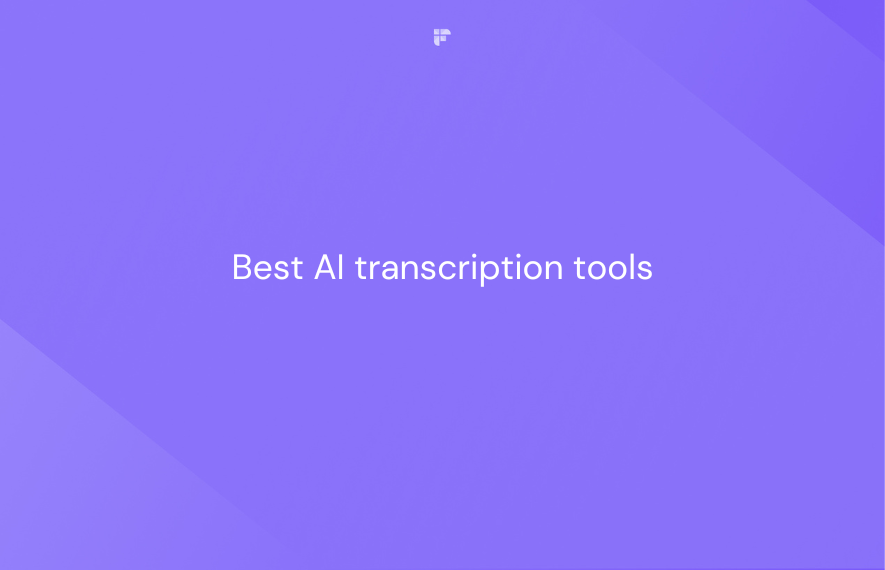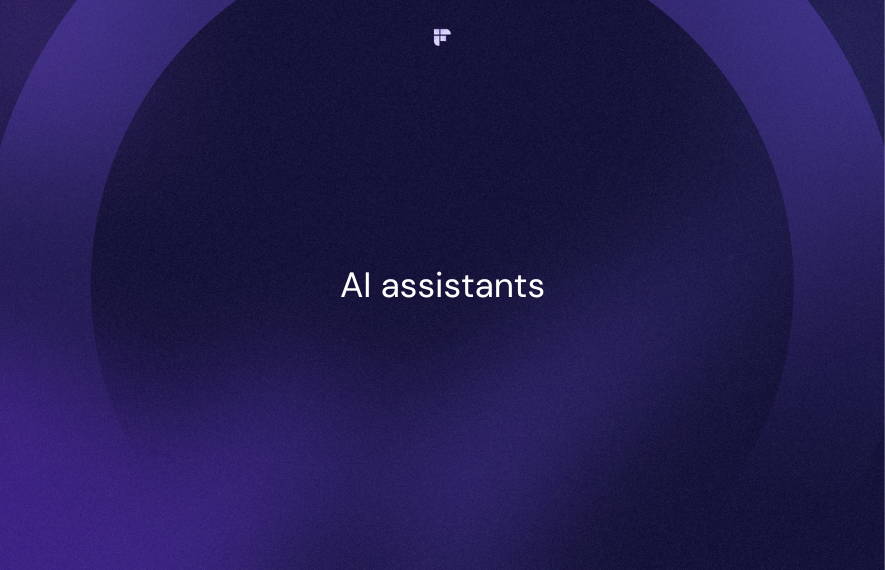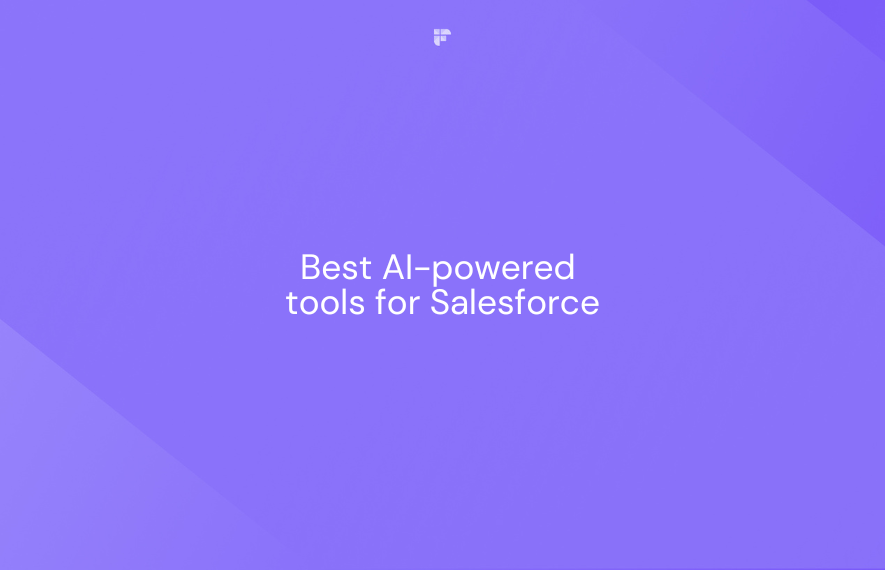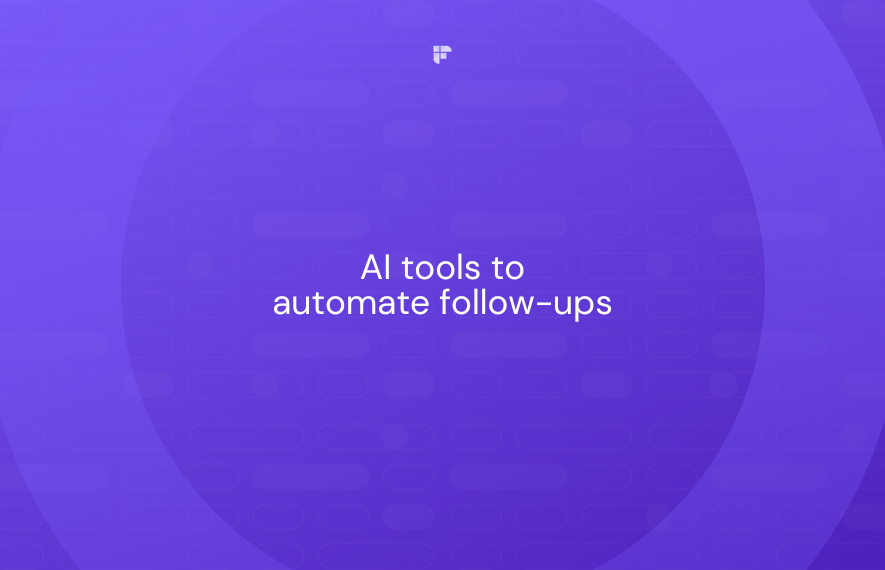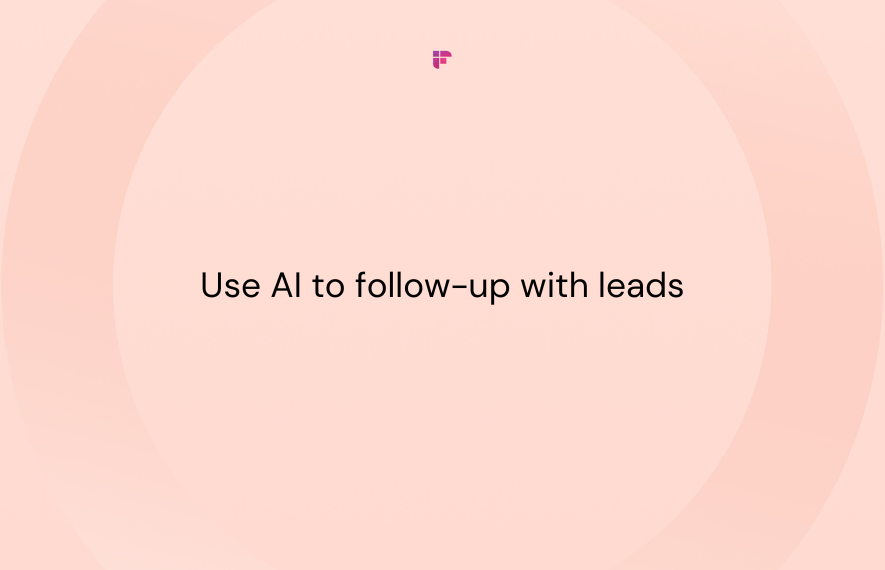Gone are the days of AI being just sci-fi talk—it's our reality now.
AI assistants like Siri and Alexa can easily understand natural language and sense environments. A simple voice command is all you need to set reminders, play Spotify, or manage your smart home.
While personal convenience is impressive, that's not all AI assistants are about. They can seamlessly integrate into your work life, elevating your productivity.
In this article, you’ll learn:
- What is an AI assistant?
- Types of AI assistants
- Is an AI assistant the same as an AI note-taker?
- Why should you use an AI assistant?
- Why use AI assistants in sales and how to choose one?
- Best AI assistant for sales team
Let's begin!
What is an AI assistant?
An AI assistant is a software application that can respond to your voice or text commands. Your commands can range from performing specific tasks like setting alarms, sending an email, or just chatting to get information from the web.
So when you say, "Hey Siri, set an alarm for 7 am," that's an AI assistant interpreting your request and taking action. If you ask, "Siri, what's the weather forecast today?" it understands you're seeking information and provides it by checking conditions.
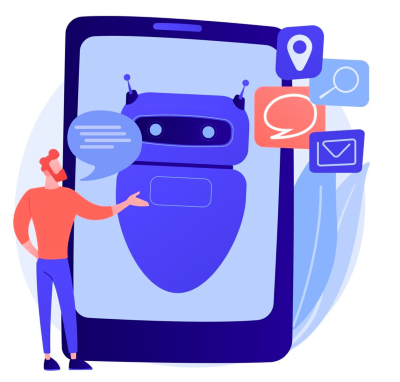
Advancements in artificial intelligence, like machine learning and natural language processing, empower this conversational capability. By digesting massive volumes of human language data, AI assistants learn to comprehend requests rather than just recognize keywords. This allows for more meaningful, contextual responses tailored to users' needs.
Whether it's smart speakers like Amazon Echo devices, smartphones with Siri or Google Assistant, or business applications like Salesforce Einstein or Fireflies AskFred, the aim is human-like conversational ability.
Types of AI assistants
AI assistants come in various forms tailored to specific use cases. The most common types include:
Personal assistants
Consumer-focused AI personal assistants like Alexa and Siri manage daily to-dos like calendars, alarms, music, smart home devices, and web searches. The more they interact with a user, the better they customize suggestions and performance over time.
Business assistants
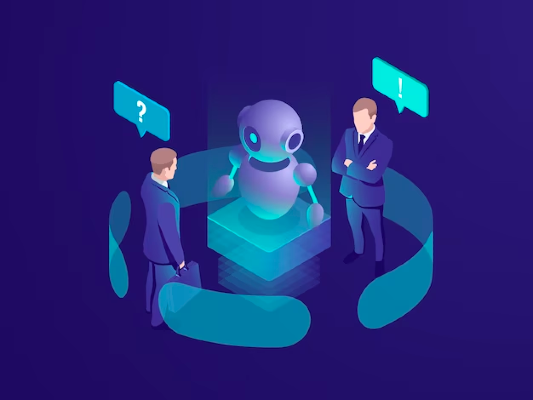
These tools concentrate on workplace tasks like scheduling, meeting transcription, data analysis, and report generation to boost employee productivity and collaboration. These AI assistant bots can also provide customer support at scale.
Sales assistants
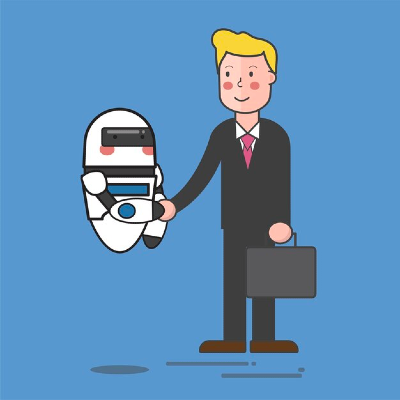
AI sales assistants surface insights for sales teams to improve conversions and close rates. Features like automated call recording, lead scoring, conversation intelligence, pipeline tracking, and contextual cue cards during calls give sellers an edge.
Custom enterprise assistants
Focused AI tools built for specific domains like healthcare, finance, and law help streamline industry-specific workflows through automation and insights unique to that vertical.
How are AI assistants different from previous chatbots?
Chatbots like ELIZA from earlier generations functioned on predefined scripts, providing fixed responses. They lacked adaptability and couldn’t understand context or engage in dynamic conversations.
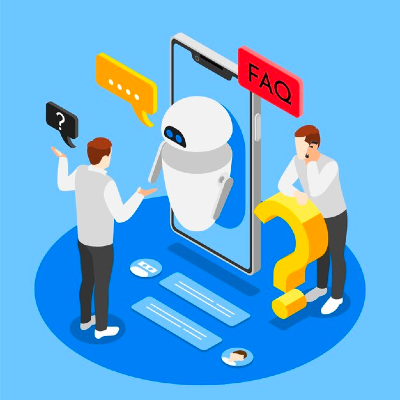
In contrast, today’s AI assistants go beyond simple rule-based interactions, continuously learning from user input and adapting to evolving patterns.
This allows AI assistants to handle complex queries, understand context, and provide personalized responses tailored to individual users.
Is an AI assistant the same as an AI note-taker?
While both AI assistants and AI note-takers involve processing spoken information, they serve distinct purposes.
AI note-takers focus on accurately transcribing meetings and calls, providing users with searchable transcripts, meeting notes, and summaries. They excel at recording and organizing information but operate more passively.
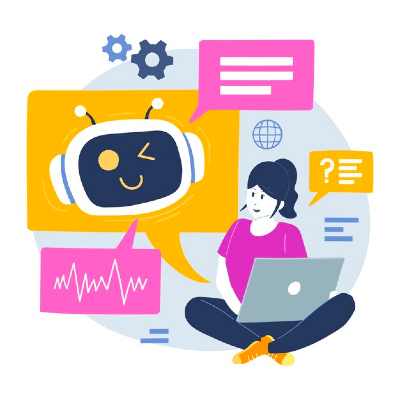
AI assistants enhance outcomes by understanding context, learning from interactions, and providing personalized assistance.
Note-takers excel at capturing meeting histories, but AI assistants actively improve and facilitate tasks and conversations.
💡 Revolutionize meetings with the combination of an AI note-taker and AI assistant
Fireflies.ai is your dynamic duo of an AI note-taker and AI assistant, AskFred. Transcribe and summarize your meetings, and then ask questions, extract insights, or generate follow-up emails and tweets.
Why should you use an AI assistant?
The global market for artificial intelligence is exploding. Predictions estimate the AI market will surge from $305.90 billion in 2024 to $738.80 billion by 2030.
According to McKinsey’s State of AI in 2023 survey, 55% of companies have already adopted AI in the workplace.
In light of this transformative wave, there are many compelling reasons for everyone to tap into AI assistants:
1. Increases efficiency
Juggling everything modern life demands is exhausting. AI assistants deliver welcomed simplicity by taking rote responsibilities off your plate. Tasks like turning off house lights, setting reminders, replying to emails, or just looking up information are a voice command away.
This frees up some of your time, which you can spend on more important things.
2. Personalization and adaptability
With built-in machine learning capabilities, AI assistants improve the more you use them. An AI assistant customizes performance by observing your unique habits and preferences to deliver tailored suggestions and autonomous actions.
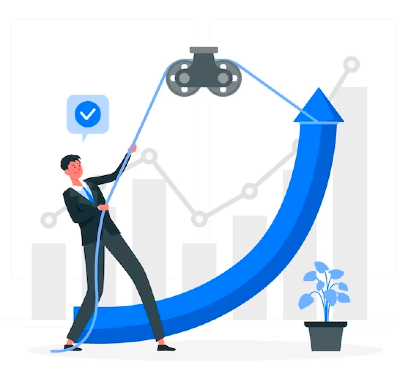
For example, if you frequently ask your mobile's AI assistant to call your sister on Tuesday evenings, after a few weeks, it will suggest you add a recurring reminder so it never slips your mind.
3. Improved organization and productivity
When life moves at warp speed, misplacing important details is easy. AI assistance offers the ultimate organizational backbone - a second brain absorbing, sorting, and connecting information so you don't have to retain everything.
Wondering when that big project is due? Ask your virtual assistant to remind you a week ahead. Can't remember a calendar event’s details? Ask your assistant.
By managing logistics for you behind the scenes, AI alleviates the feeling of mental clutter so you stay focused on delivering great work rather than losing productivity.
4. Business applications
AI assistants can enhance many business functions like sales, marketing, and analytics. They can spot data patterns that inform optimal pricing models and inventory allocation. Or you can use AI writing assistants to help you overcome your writing blocks. The use cases are vast.
For example, Fireflies AskFred can extract information from all your virtual meetings, no matter how old. Can't remember the company goals discussed during Q4's business meeting? Just pop the question. Additionally, assistants like Salesforce Einstein uncover buyer insights that boost lead conversion rates.
Why use AI assistants in sales and how to choose one?
Sales teams stand to gain enormously from the right AI tools purpose-built for their unique needs.
The selling profession demands nonstop engagement across calls, emails, and meetings to land new deals, but manually tracking and coordinating these efforts devours scarce time.
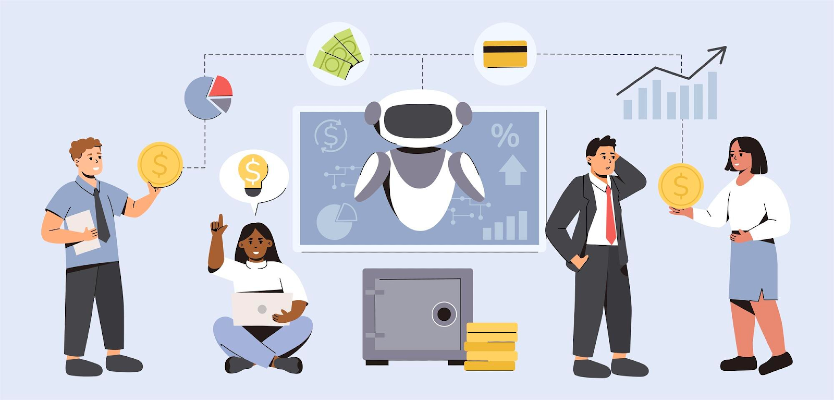
Sales require intense human judgment and emotional intelligence during customer conversations. This limits productivity scalability even with large teams.
AI sales assistants overcome these constraints through features like:
- Automated call transcription and summaries to help you jog your memory within minutes
- Searchable transcripts so you can find relevant information quickly
- Automatic data entry in CRM, saving you time
- Conversation intelligence to enhance sales coaching. Analyze conversations for filler words, positive/negative sentiments, long monologues, average time spent in conversations, etc.
These capabilities boost sales productivity, efficiency, and outcomes by enhancing every pipeline stage. Assistants capture more signals, provide better visibility into performance trends and risks, and sharpen reps’ competencies.
The result is selling teams that close more deals faster. When evaluating AI sales assistants, prioritize tools emphasizing these time-saving and revenue-accelerating strengths.
Best AI assistant for sales team: Fireflies.ai
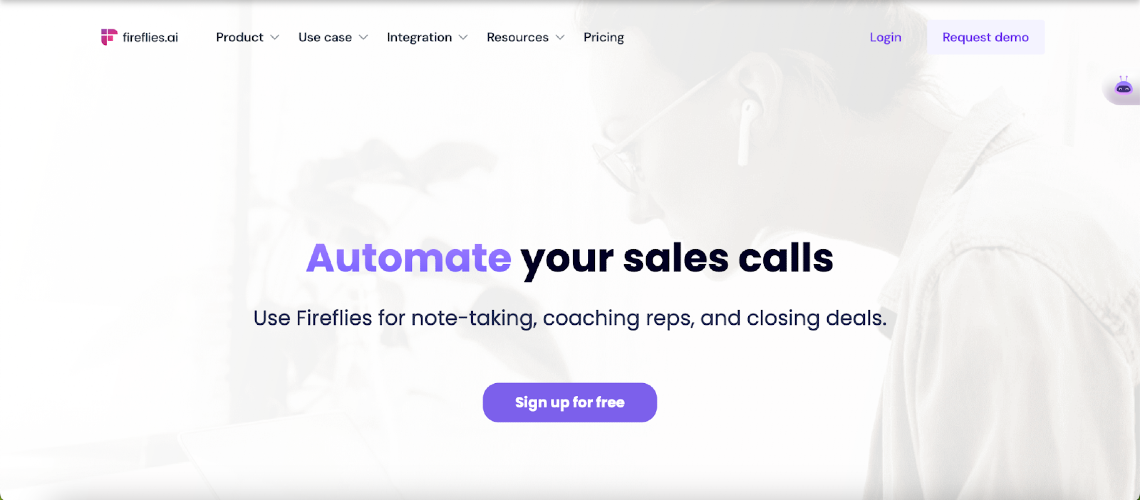
Fireflies.ai stands out as the premier AI sales assistant. It can seamlessly record, transcribe, summarize, and analyze your sales calls.
Here’s everything Fireflies can help you with:
- Revisit key moments and identify any missed opportunities or areas for improvement
- Customize your sales call summaries to extract relevant information
- Ask questions or get insights from GPT-4 powered chatbot AskFred
- Integrate your CRM and automate data entry under relevant contacts
- Search the transcript for essential details like objections, competitor mentions, buying signals, and more
- Analyze your conversations for filler words, sentiments, talk time, words spoken per minute, and more. Identify red flags and improve your conversation skills
- Smart Search for filtering questions, dates and times, tasks, metrics, pricing, and more
- Track specific topics from all your meetings with Topic Tracker
- Neatly organize all your sales calls into Channels for quick access
- Create small sharable sound bites from conversations
- Search across all of your meeting recordings for information
- Share previous successful and unsuccessful calls with new sales reps to help onboard them faster
By leveraging Fireflies.ai as the AI assistant for sales, teams can prevent deals from slipping through the cracks. They gain more visibility into conversations while also spending less time on administrative tasks like taking meeting minutes and CRM data entry.
Intelligent assistants like Firefies.ai lead the AI assistant revolution.
The technology is still in its early phases, but rapid advancement continues across all industries. Over the coming decade, AI assistants will transition from useful tools to indispensable business partners.
Are you ready to hop on the AI bandwagon?
